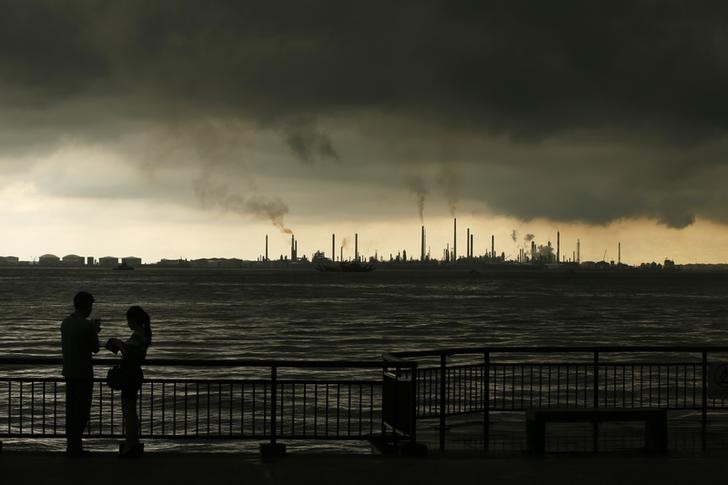Investing.com - Oil prices climbed on Tuesday, reversing early losses amid hopes that U.S. President Donald Trump would use a speech later in the day to indicate progress towards resolving the protracted U.S.- China trade war.
Trump will speak at 12 PM ET (1700 GMT) at the Economic Club of New York, and investors are keen for an update on the trade talks with China after recent reports indicated that the mooted ‘phase-1’ deal may not be finalized until December.
Prices had come under pressure on Monday amid concerns over slower economic growth and the outlook for oil demand due to the fallout from the 16-month trade conflict between the world’s two largest economies.
Brent crude, the global benchmark, was up 30 cents at $62.48 a barrel by 08:07 AM ET (01:07 GMT), after falling as low as $61.90. U.S. crude futures were 13 cents higher at $56.96 per barrel.
"The oil market is in a holding pattern," said Tamas Varga of oil broker PVM. "The next $5-$10 move will be decided by economic and trade considerations."
Trump "is widely expected to delay his decision to impose tariffs on European car and auto part imports and will also shed further light on the status of the trade negotiations with China," Varga added.
"Market participants continue to believe in a (partial) trade agreement to be signed soon," said Carsten Fritsch, analyst at Commerzbank (DE:CBKG). "Increasing doubts about this would put oil prices under pressure."
Oil prices were also underpinned by U.S. data showed that crude inventories at Cushing, the delivery point for WTI, fell by about 1.2 million barrels in the week to Nov. 8, traders said, citing market intelligence firm Genscape.
Cushing inventories had grown for five weeks in a row through Nov. 1, according to government data.
Brent has risen 16% in 2019, supported by a supply-limiting pact by the Organization of the Petroleum Exporting Countries and allies including Russia. The producers meet on Dec. 5-6 to decide whether to extend the deal.
Oman, one of the outside producers working with OPEC, said on Monday that the alliance would probably extend the agreement but was unlikely to increase the size of the supply cut.
--Reuters contributed to this report
